Voices of internal opposition: These Republicans could tank the GOP Obamacare repeal-and-replace bill
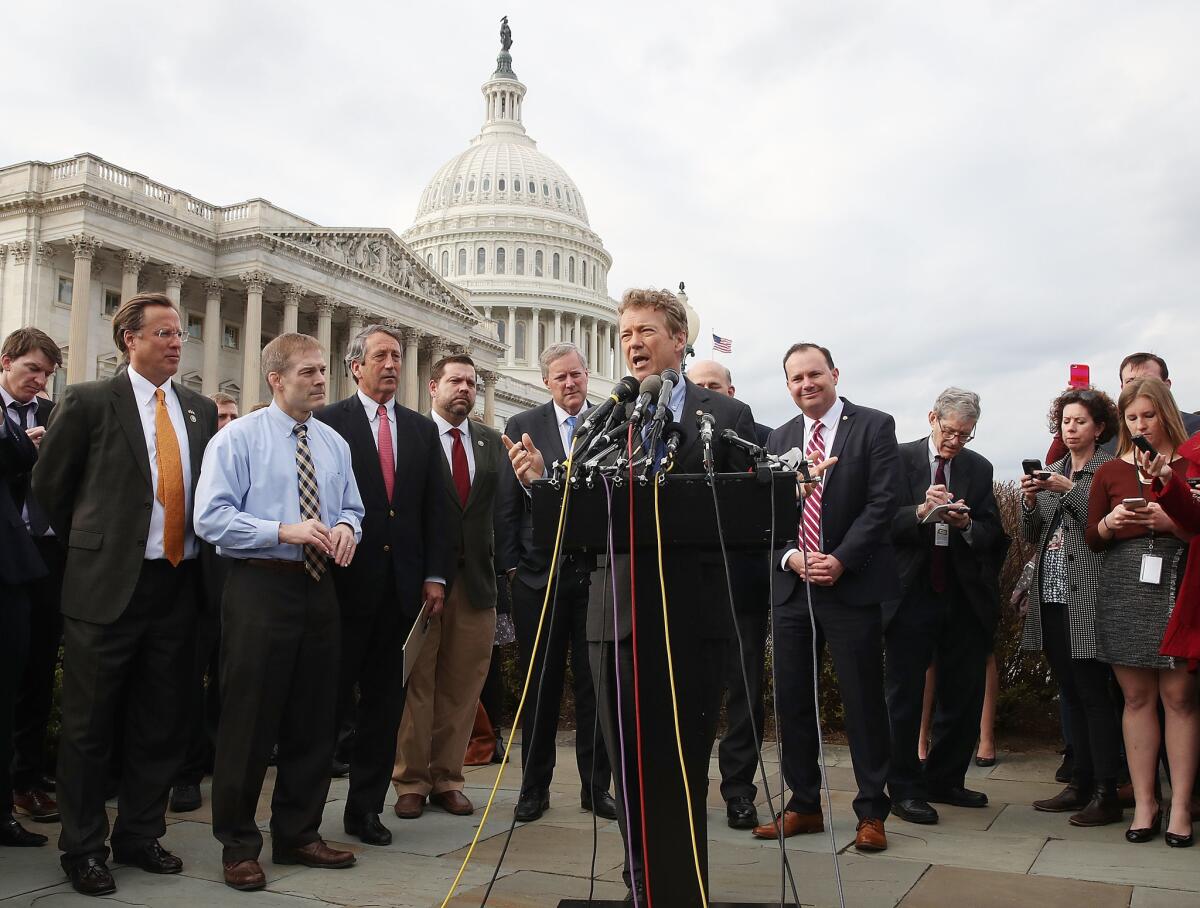
Reporting from Washington — Republicans hold a majority in Congress, but are now at odds over how to fulfill one of their biggest campaign promises: repealing and replacing Obamacare.
Conservatives from the small-government wing are leading the opposition, but concerns are also coming from more moderate Republicans worried about healthcare disruptions for those now covered by the Affordable Care Act.
The GOP can lose no more than about 20 votes in the House and two in the Senate to pass the bill, assuming all Democrats vote against it. But already many Republicans are voicing reservations.
Here are some of the GOP lawmakers who could determine the fate of the repeal-and-replace bill.
Rep. Mark Meadows (R-N.C.)
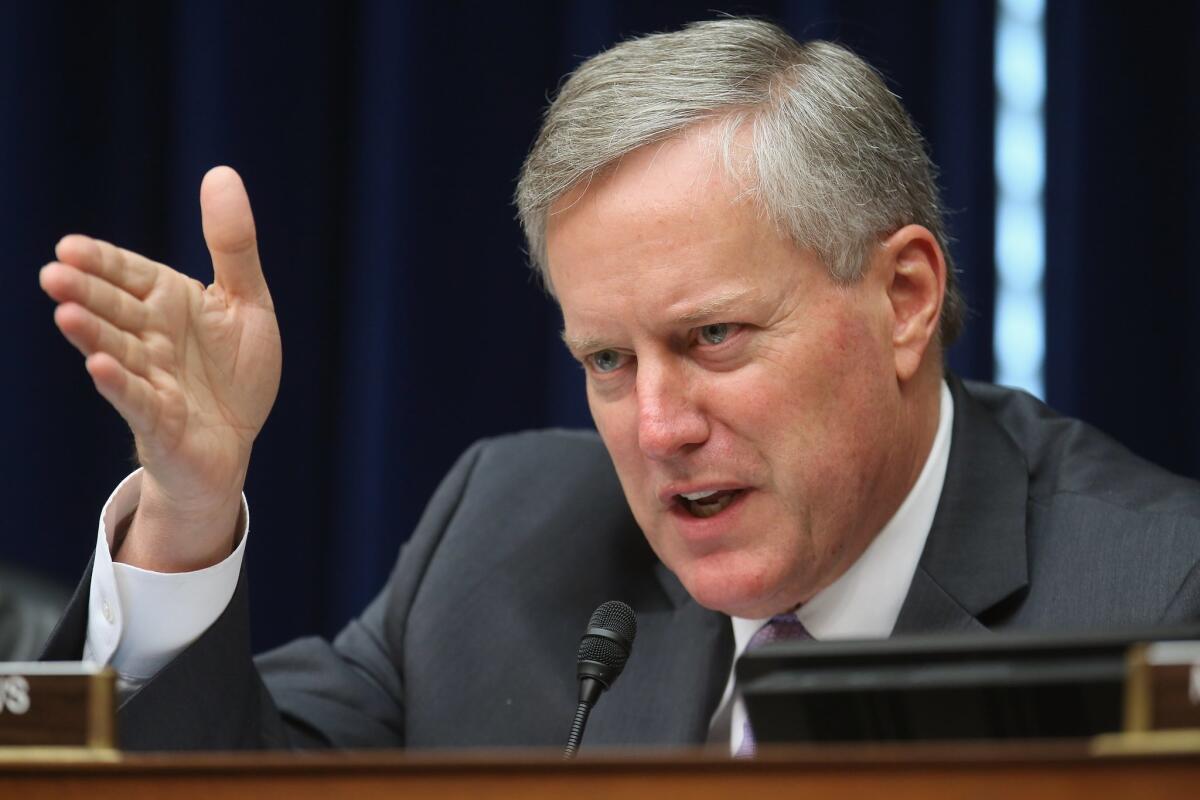
This bill is just Obamacare in a different form.
Meadows is the chairman of the conservative Freedom Caucus. Like many small-government proponents, he does not think the GOP bill goes far enough in dismantling Obamacare, particularly its insurance mandates, federal subsidies for low- and moderate-income people and expansion of Medicaid. With about 30 members, the secretive caucus has enough votes to stop the bill.
Rep. Jim Jordan (R-Ohio)

We certainly didn’t tell the voters we’re going to repeal Obamacare, but start a new entitlement.
— MSNBC
Jordan has been one of the most outspoken voices opposing Obamacare. As a founding member of the Freedom Caucus, he also favors repealing Obamacare entirely, and reintroduced a 2015 bill with Sen. Rand Paul (R-Ky.) to do just that. Then he wants to start from scratch on a replacement plan. He and other deficit hawks are particularly opposed to the new tax credits created in the GOP plan.
Rep. Dave Brat (R-Va.)

We want Trump to be a success and I don’t think he wants to own this bill.
Brat’s concern is that the president “is being sold a little bit of spin on repeal,” and worries that elements of Obamacare remain. He says the GOP bill swaps one federal subsidy system for another and retains insurance rules that will not lower costs. “It will not go well for the next eight years.”
Rep. Raul Labrador (R-Idaho)
President Trump signaled his willingness to negotiate. I’m eager to take him up on this offer.
Labrador is among those taking his concerns to the White House, believing he’ll have a better audience with the administration than House leadership. Trump has generally endorsed the GOP plan, but he has also characterized it as a starting point for negotiations. Fiscal conservatives such as Labrador sense an opening.
Sen. Tom Cotton (R-Ark.)
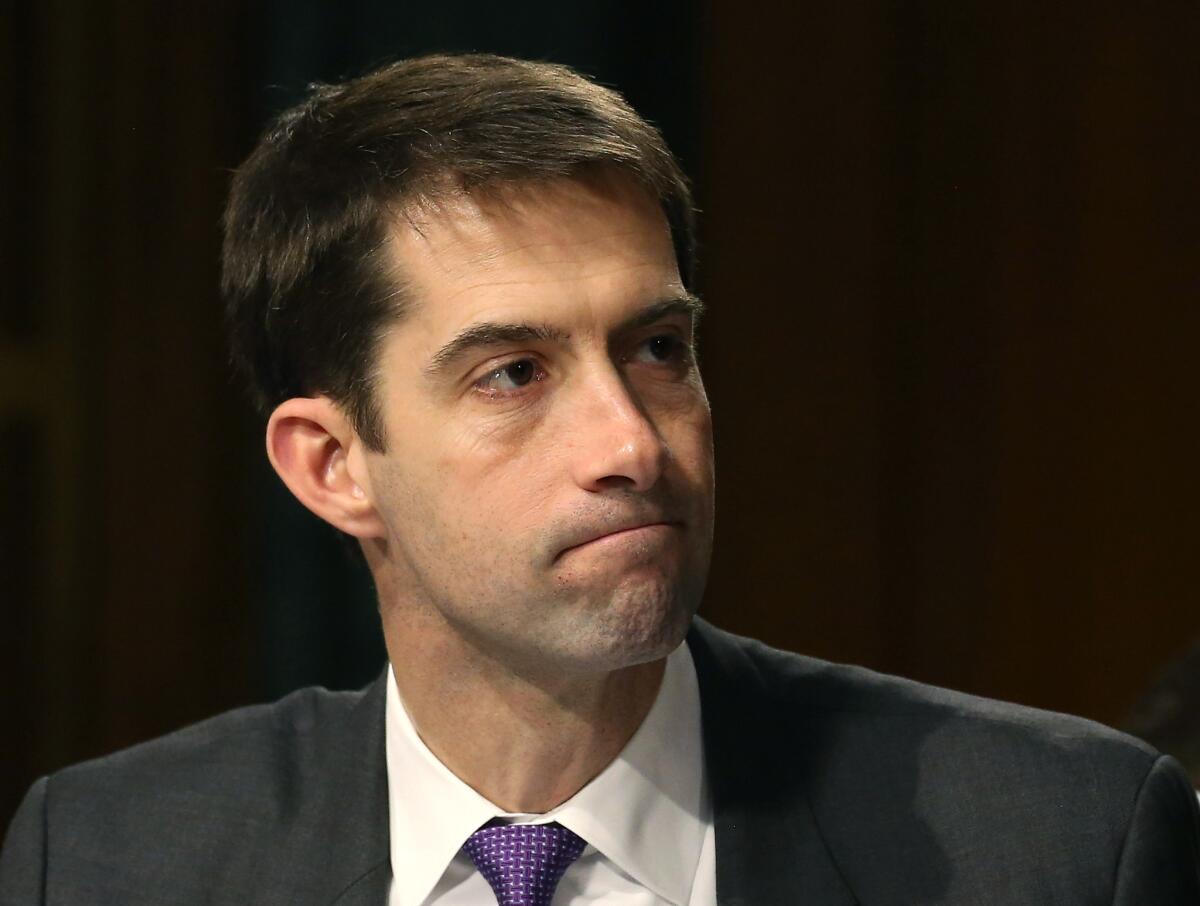
House health-care bill can’t pass Senate w/o major changes. To my friends in House: pause, start over. Get it right, don’t get it fast.
— In tweet
Cotton, a newer but increasingly vocal senator, urged his House colleagues to abandon the “arbitrary” deadline they have set for themselves or risk appearing to repeal Obamacare in the same aggressive, partisan manner it was approved by Democrats. He said lawmakers should await the cost analysis by the Congressional Budget Office.
Sen. Rand Paul (R-Ky.)

Republicans are in agreement on repeal but we’re not in agreement on replacement. We’re widely apart on replacement.
Paul is leading the Senate opposition, working closely with House conservatives. An ophthalmologist, he opposes federal subsidies to buy insurance and has offered his own replacement bill. “Let’s vote on all the replacement plans and see what happens.”
Sen. Mike Lee (R-Utah)
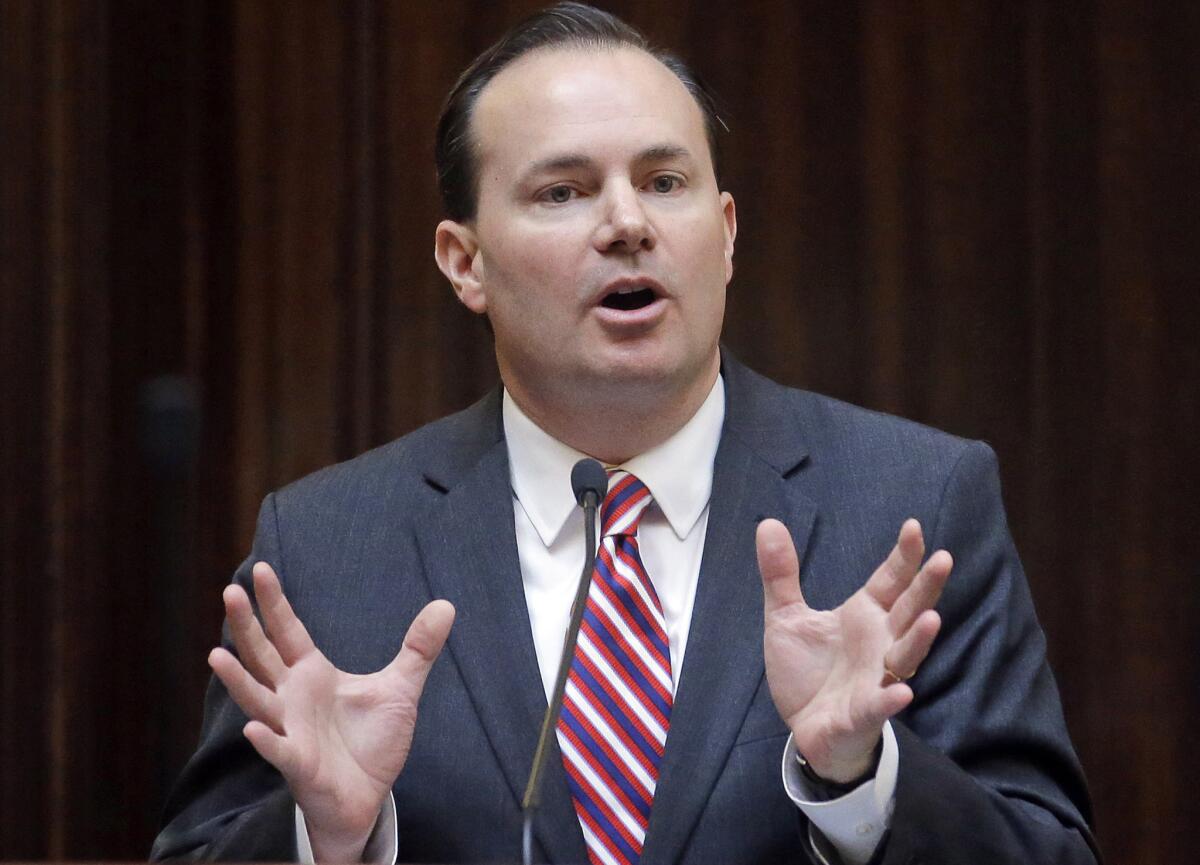
We don’t know how much it will cost, and we don’t know if this bill will make healthcare more affordable for Americans.
Lee joined Paul in early opposition to the House plan, and has been particularly critical of GOP leaders for engaging in “the type of back-room dealing” that produced the bill and is now pushing it to a vote. Quieter than many colleagues, he is among the most conservative in the Senate, making him influential in and out of Washington.
Sen. Ted Cruz (R-Texas)
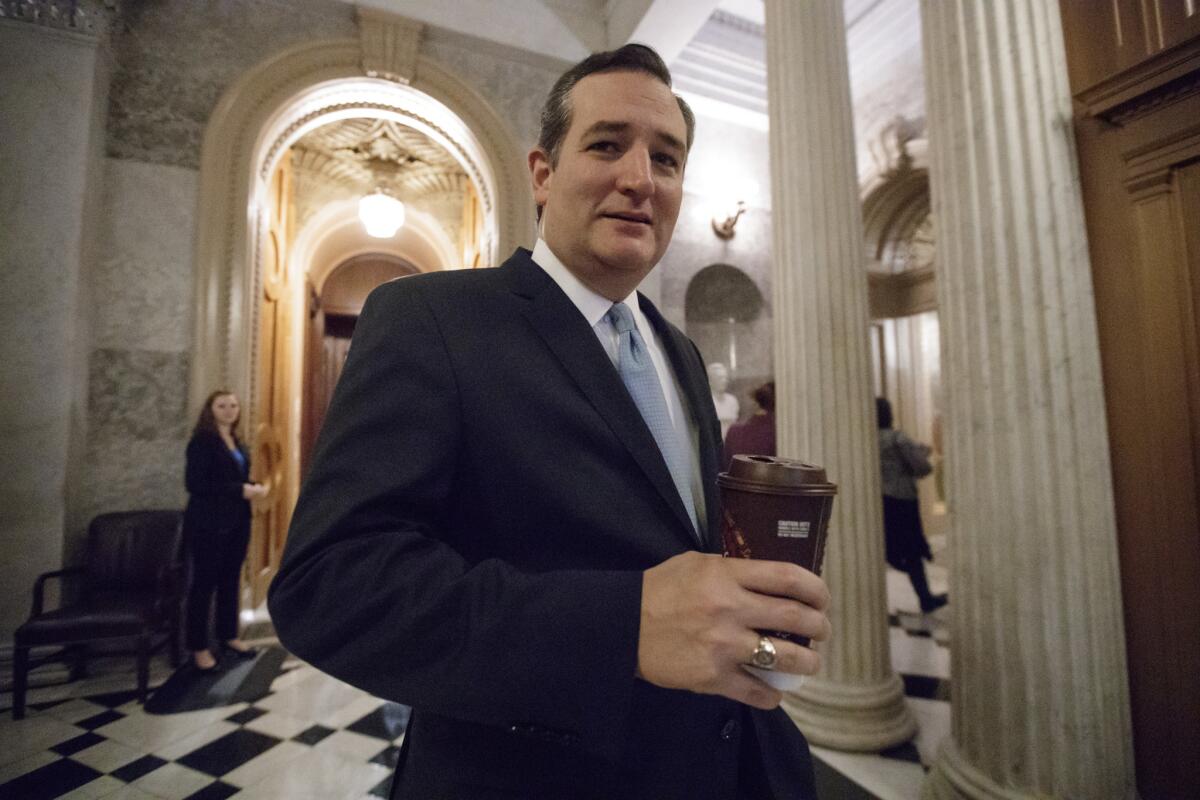
The House bill as currently drafted, I don’t believe, will pass the Senate. But I believe we can fix it.
Cruz is emerging as a possible deal-maker, shuttling back and forth between House and Senate conservatives — and dinner with Trump at the White House. He opposes the House bill, but wants to address Freedom Caucus concerns and make sure Republicans don’t miss this opportunity to get a bill to the president’s desk.
Sen. Susan Collins (R-Maine)
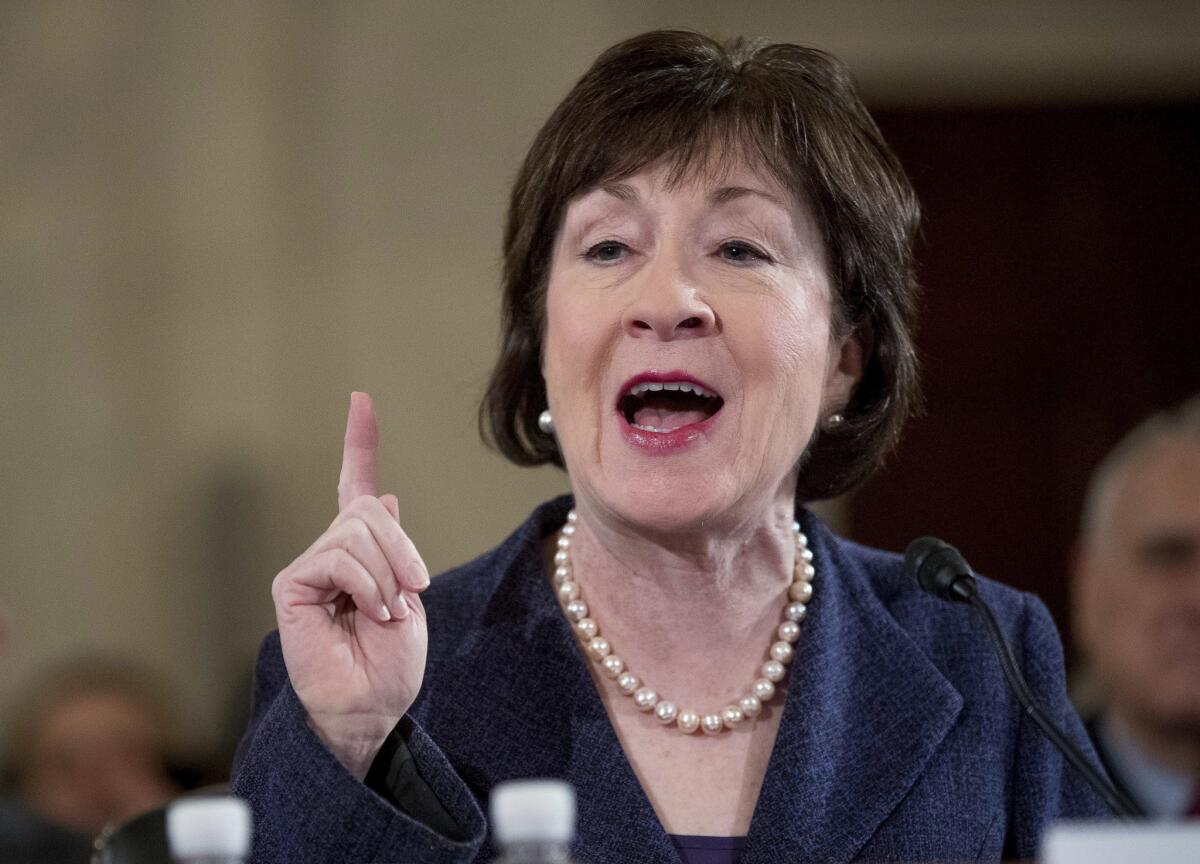
I want us to slow down to take more time to be sure we get this right.
Collins is among the more moderate Republicans, but represents a growing flank of GOP senators concerned that patients will lose healthcare options, particularly with the House GOP’s elimination of Planned Parenthood funds. “Why should those women have to change doctors?” she told Katie Couric at Yahoo News. “That doesn’t make sense.”
Sen. Rob Portman (R-Ohio)
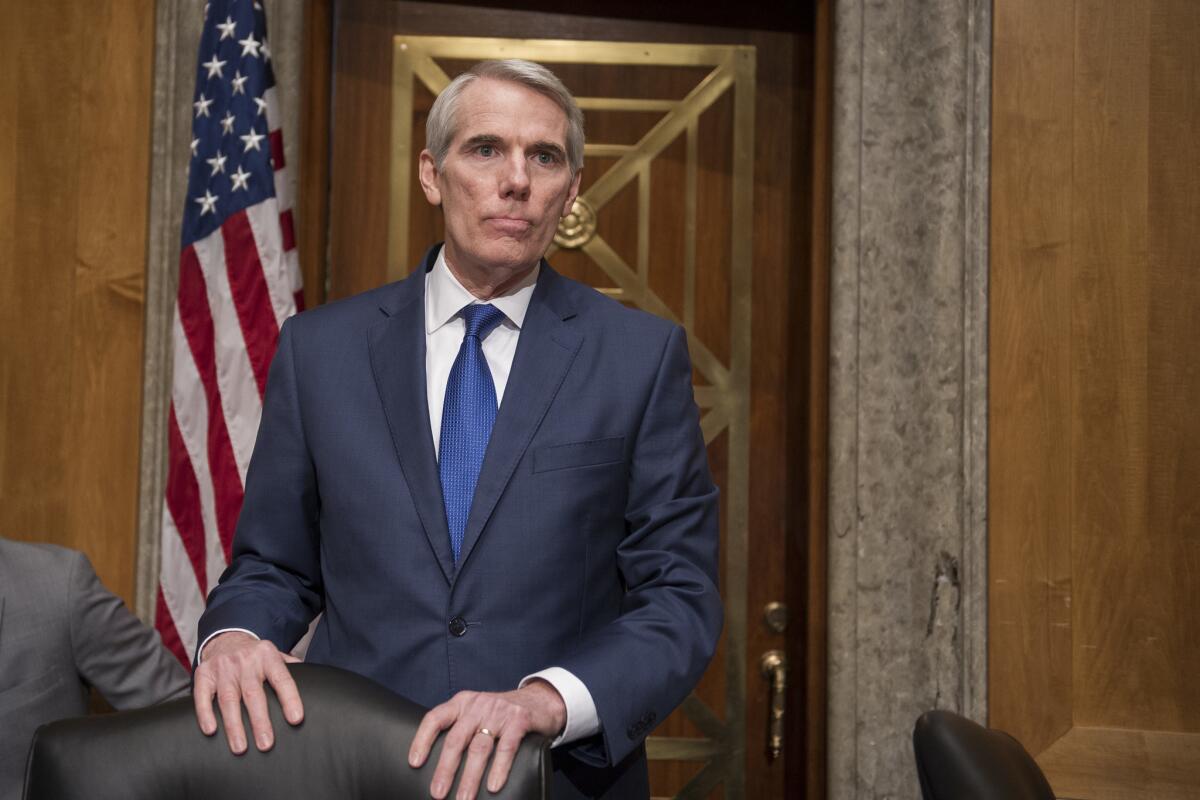
We must provide stability and certainty for individuals and families in Medicaid.
Portman is among a group of four GOP senators who raised early concerns about reducing federal funds for states that expanded Medicaid under Obamacare. After a meeting this week with Vice President Mike Pence, he appeared no closer to supporting the GOP bill. “We all share the goal of repealing and replacing Obamacare with a better plan,” he said. “I will continue to work with the administration and my colleagues to address these concerns.”
Twitter: @LisaMascaro
ALSO:
Republicans unveil plan to repeal and replace Obamacare amid conflicting pressures
GOP leaders turn up the heat on reluctant Republicans to support Obamacare replacement
Winners and losers in the GOP’s proposed Obamacare replacement plan
More coverage of politics and the White House
More to Read
Get the L.A. Times Politics newsletter
Deeply reported insights into legislation, politics and policy from Sacramento, Washington and beyond. In your inbox three times per week.
You may occasionally receive promotional content from the Los Angeles Times.











